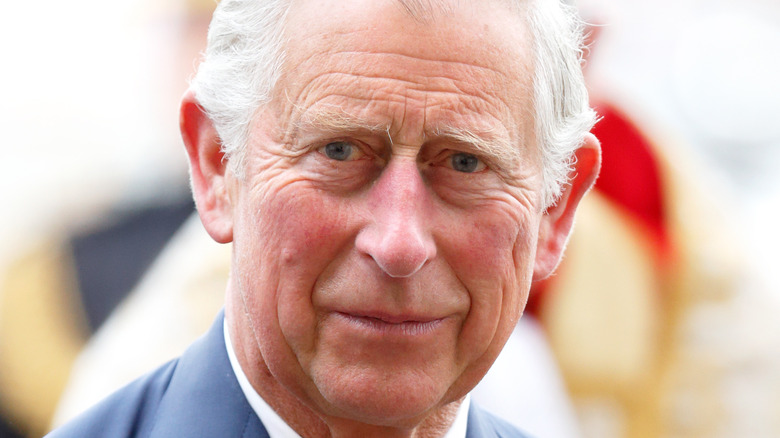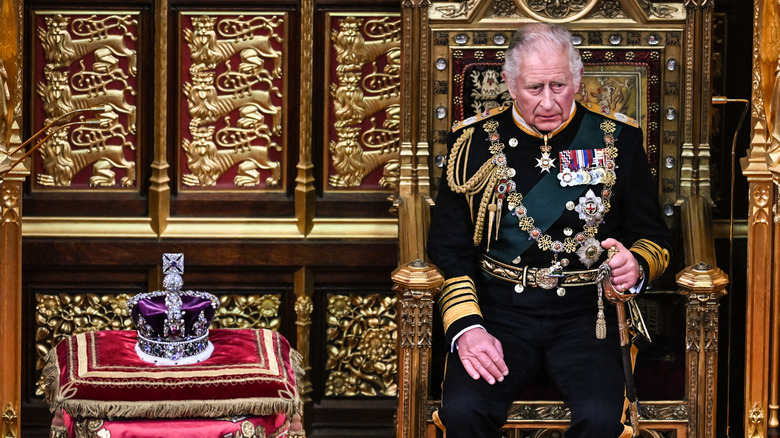King Charles Could Lose Some Of The Countries He Oversees Faster Than Anyone Expected
With the heartbreaking death of Queen Elizabeth II, King Charles III automatically ascended to the British throne. With his new title, Charles also becomes the head of state of other countries: Antigua and Barbuda, Australia, Bahamas, Belize, Canada, Grenada, New Zealand, Papua New Guinea, Saint Kitts and Nevis, Saint Lucia, Saint Vincent and the Grenadines, Solomon Islands, and Tuvalu (per Forbes). His role in these nations — known as "Commonwealth Realms" — will be, for the most part, ceremonial, with a governor-general assigned to each country to perform the king's daily duties.
But even before the queen's passing, some countries started to express their desire to leave the Commonwealth. In 2020, Barbados decided to remove Queen Elizabeth as its head of state. "The time has come to fully leave our colonial past behind," Barbados Governor General Sandra Mason said during a speech last week (via NBC News). "Barbadians want a Barbadian Head of State. This is the ultimate statement of confidence in who we are and what we are capable of achieving."
Earlier this year, Jamaica's Prime Minister Andrew Holness announced that his country would be seeking independence. He even informed William, Prince of Wales, and Catherine, Princess of Wales, of the nation's plans when the royals visited Jamaica in honor of the queen's Platinum Jubilee, per CBS News.
Other governments are also planning to follow suit — meaning Charles could be overseeing fewer countries than anticipated.
Antigua and Barbuda will vote to leave the Commonwealth
The prime minister of Antigua and Barbuda has announced that the country will be voting on whether to remove King Charles III as its head of state in the next three years. "This is a matter that has to be taken to a referendum for the people to decide," Gaston Browne told ITV News. "It does not represent any form of disrespect to the monarch. This is not an act of hostility, or any difference between Antigua and Barbuda and the monarchy. It is a final step to complete the circle of independence to become a truly sovereign nation."
Australia is also looking into the possibility of a referendum to turn the country into a republic, with Prime Minister Anthony Albanese appointing a minister to look into the process. Things have been postponed, however, due to Queen Elizabeth's passing. As a result, a possible referendum will not be introduced until the next federal election in 2025, per CBS News. And New Zealand's Prime Minister Jacinda Ardern has revealed that she believes her country leaving the Commonwealth is something that "will likely to occur in my lifetime." But she doesn't think there is a reason to rush into the process.
"This is a large, significant debate. I don't think it's one that would or should occur quickly," Ardern said.

